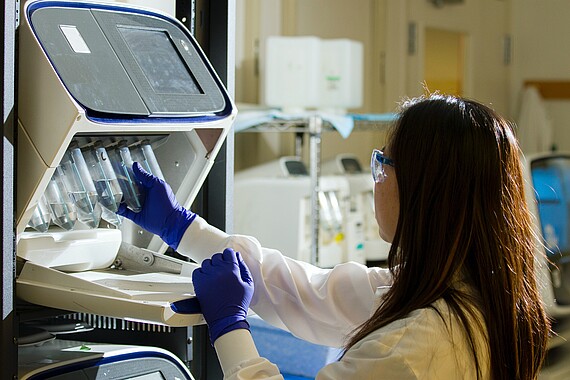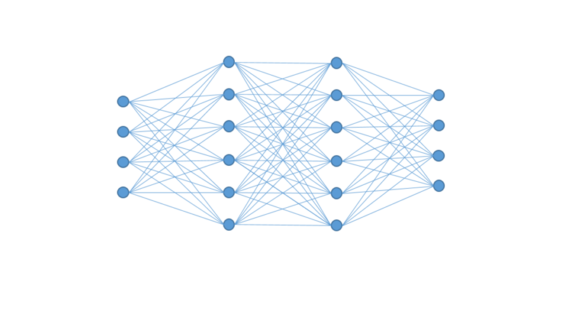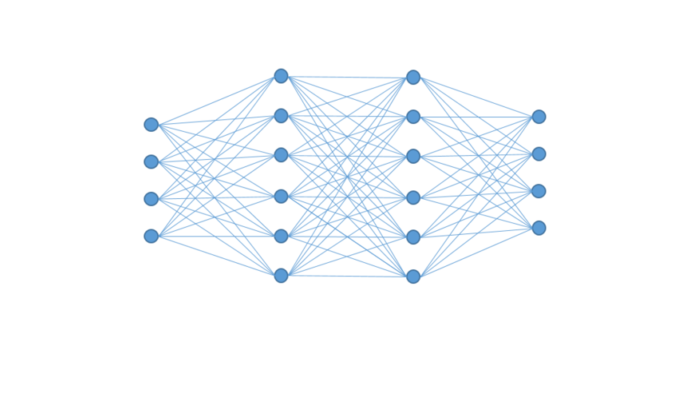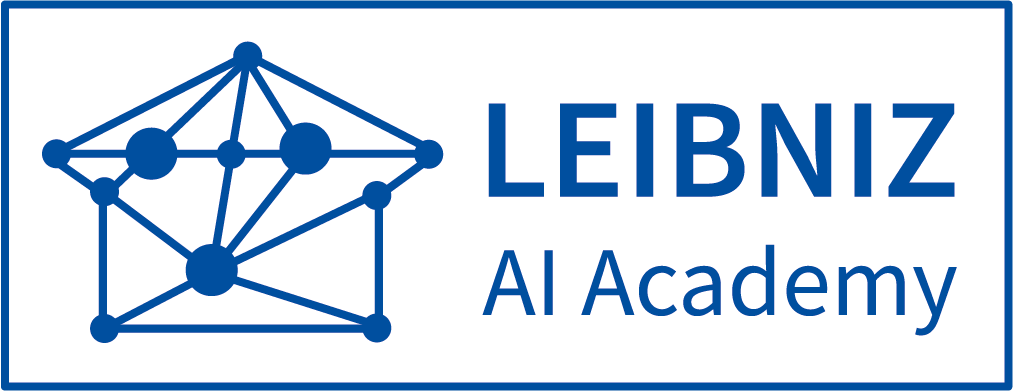This section provides an overview of the application courses of our Micro Degree Programmes. Further details regarding locations, timetables, and the semesters in which the courses are offered can be found in the university’s online course catalogue.
AI for Health



Responsible: Prof. Dr.-Ing. Bodo Rosenhahn
Institute for Information Processing
Target group: Studierende der Informatik sowie der Elektro- und Informationstechnik
Description: The aim of this course is to convey the technical fundamentals of modern image acquisition systems, core techniques in image processing and visualisation, as well as key hardware and computing platforms used in imaging and image analysis systems.
Syllabus includes:
- Introduction and motivation
- Optical imaging systems (optics, cameras, formal definitions of images)
- Imaging techniques (X-ray, ultrasound, MRI, CT, electrical impedance tomography, terahertz imaging)
- Fundamentals of image processing (local and global operators, contrast enhancement, noise and artefact reduction, etc.)
- Fundamentals of visualisation
- Image segmentation
- Compression of medical image data
- Architectures for imaging and image analysis systems
- Data formats in medical imaging
Credit Points: 5
Language: German
AI for Production Technology



Responsible: Prof. Dr.-Ing. Berend Denkena
Institute of Production Engineering and Machine Tools
Target group: Students from mechanical engineering, mechatronics, industrial engineering, production and logistics, and computer science
Description: This course offers a practice-oriented introduction to the application of Artificial Intelligence (AI) methods in production contexts. Building on an overview of production processes and related challenges, participants explore various fields of AI application through concrete real-world examples – such as wear detection, anomaly detection for quality assurance, and adaptive process planning.
The theoretical content is delivered in intensive block sessions and complemented by practical exercises. Working in interdisciplinary teams, participants develop their own solution strategies for production-related problems using AI-based methods.
Credit Points: 5
Language: English
Spatial Data Science



Responsible: Prof. Dr.-Ing. habil. Monika Sester
Institute of Cartography and Geoinformatics
Target group: Everyone
Description: Students acquire fundamental concepts and methods for the analysis of spatial and spatio-temporal data. In thematically structured modules, they gain in-depth insights into key aspects of the field.
The section Spatial Query Languages introduces spatial operators and topological relations, which play a central role in the analysis of spatial datasets. The module Multiple Representations addresses the representation of spatial data at different scales and discusses various approaches to generalisation.
Another focus lies on the application of Artificial Intelligence methods – particularly machine learning – for identifying spatial patterns and solving complex analytical problems. In addition, the topic Spatio-Temporal Analysis deals with the integration of the temporal dimension in order to identify time-dependent patterns, such as those found in movement data.
In the accompanying practical sessions, students apply the theoretical concepts in hands-on exercises. They independently implement algorithms and apply them to real-world datasets. This practice-oriented approach fosters a deep understanding of both the potential and the limitations of the methods covered.
Credit Points: 5
Language: English
Image Analysis for Geospatial Applications



Responsible: apl. Prof. Dr. techn. Franz Rottensteiner
Institute of Photogrammetry and GeoInformation
Target group: Students of geodesy and geoinformatics
Description: Students learn modern supervised classification methods for image and surface data, with a particular focus on their application in the acquisition and updating of geospatial data, as well as in other geoinformatics-related fields. In addition to classical machine learning approaches, the course places a strong emphasis on deep learning methods, particularly Convolutional Neural Networks (CNNs), which are explored both theoretically and through practical implementation.
A key focus is on strategies to reduce the need for manually labelled training data – especially techniques related to domain adaptation and learning from noisy or imperfect labels.
Syllabus topics include:
- Introduction: Sensors and data acquisition in remote sensing
- Georeferencing of remote sensing data
- Hand-crafted features in image analysis
- Machine learning and deep learning for image classification
- Deep domain adaptation and learning with noisy labels
- Topographic applications of CNNs: classification of land cover and land use for the acquisition and updating of geospatial databases
- Further applications of CNNs in image analysis – e.g. in autonomous driving and digital cultural heritage preservation
Credit Points: 5
Language: English
AI in Teacher Education



Responsible: Prof. Dr. Sascha Schanze
Institute of Science Education
Target group: Students enrolled in teacher education programmes
Description: Innovative forms of AI-supported learning assistance are opening up new possibilities for assessment and diagnosis. Learner data are to be understood as “digital footprints” of individual learning processes, whose analysis and interpretation remain inherently ambiguous.
The central aim of this module is to support the professional development of prospective teachers in the context of data-informed learning. Students will learn to understand relevant methods, reflect on them critically, and integrate them meaningfully into their own teaching practice.
In addition, the module provides impulses for further academic specialisation and supports the development of application-oriented concepts for educational settings.
Credit Points: 2 (Introduction), 5 (Foundations & Specialisation)
Language: German
AI for Education



Responsible: Prof. Dr. Steffi Robak
Institute of Vocational Education and Adult Education
Target group: Students of the Master of Education and engineering disciplines
Description: This module provides an introduction to key application areas of Artificial Intelligence (AI) for shaping innovative educational processes in adult and continuing education. It addresses both technological and pedagogical issues related to the use of AI-based systems in educational contexts.
Through an interdisciplinary perspective, the module explores how the use of such technologies is often rooted in implicit, learning-theory-based educational concepts. It also examines ideas of control and surveillance in learning processes, which must be critically reflected upon – especially in light of the increasing focus on competence orientation and the demand for autonomy and self-directed learning, as emphasised in constructivist approaches.
The module aims to develop competencies for the design and responsible use of trustworthy AI systems in support of lifelong learning – both for prospective adult educators and for students in technical disciplines.
Syllabus:
- Intelligent search systems
- Personalised recommendation systems
- Intelligent tutoring and assistant systems
- Voice assistants and chatbots
- Automated performance assessment and balancing
- Learning theories and foundations of educational psychology
Credit Points: 5
Language: German
Data Science for Design and Engineering



Responsible: Prof. Dr.-Ing. Philipp Geyer
Institute of Design and Construction
Target group: Master’s students from the Leibniz AI Academy, as well as from engineering, landscape architecture, environmental planning, and computer science
Description: In light of the growing demand for sustainable design and the associated complexity in fields such as building technology, automotive engineering, mechanical engineering, and civil engineering, professionals across disciplines face the challenge of making informed and effective design decisions.
This course equips students with the skills to apply data science and artificial intelligence to support decision-making in complex design contexts. Based on the paradigms of systems engineering and design space exploration (DSE), participants learn to apply state-of-the-art data science and AI techniques – such as machine learning and clustering – in a targeted manner.
These methods are used in design projects to systematically explore design spaces (DSE), integrate sustainability considerations early on, and support data-driven decision processes. The course ultimately positions AI as a strategic tool that empowers engineers and designers to develop efficient and sustainable solutions.
Credit Points: 5
Language: English






